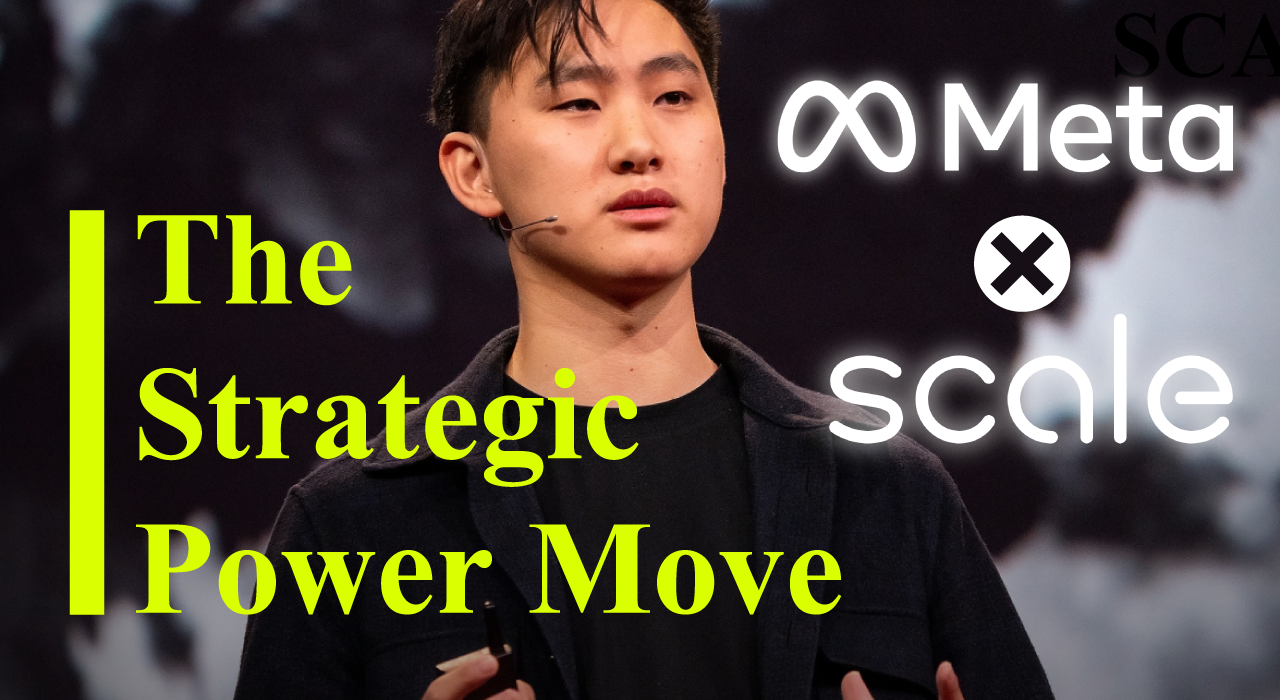
At just 27 years old, Alexander Wang has become one of the most influential figures in the global AI landscape.
A former MIT student and early engineer at Quora, Wang launched Scale AI in 2016 with a laser-focused mission: to solve one of artificial intelligence's most persistent and foundational challenges—high-quality data labeling.
Unlike many startups chasing flashy product front-ends or end-user applications, Wang chose to go deep into infrastructure, recognizing that the future of AI would be won not by building the smartest models, but by training them with the best data.
Under his leadership, Scale AI became a cornerstone of the AI economy. The company provided labeling services to tech giants including OpenAI, Microsoft, Meta, Toyota, and the U.S. Department of Defense.
Whether it was annotating images for autonomous driving, curating instruction datasets for language models, or providing human feedback for fine-tuning safety, Scale AI emerged as the go-to provider for any company serious about training cutting-edge models.
Wang's leadership style is both technical and visionary. He understands how transformers work, but more importantly, he knows what it takes to operationalize AI at scale.
His view that "data infrastructure is as critical to AI as semiconductors are to computing" has proven prescient.
With Scale AI now officially acquired by Meta for a reported $18 billion, Wang is expected to join Meta's senior AI leadership team, where he will oversee internal data operations, labeling pipelines, and alignment strategies for the company’s most ambitious models.
The acquisition of Scale AI by Meta is not just a major business transaction—it's a strategic shift in how AI dominance will be contested in the coming decade.
In a tech landscape dominated by battles over compute, algorithms, and deployment platforms, Meta has made a bold move to own what many consider the "invisible engine" of AI success: labeled data.
Scale AI has been instrumental in developing training datasets for some of the most advanced AI systems in the world.
This includes not just image and video annotation, but more complex tasks like multi-turn dialogue labeling, content alignment, bias identification, and synthetic data validation. For Meta, acquiring these capabilities is akin to acquiring a gold mine of structured intelligence.
This move comes at a time when AI model development is growing increasingly expensive. Training a frontier model today requires millions of dollars in compute, but the data preparation costs are also skyrocketing.
By internalizing this critical piece of the puzzle, Meta reduces reliance on third parties, accelerates iteration speed, and safeguards data quality and privacy.
Financially, the $18 billion acquisition is one of the largest in recent AI history, rivaling Microsoft's massive investment in OpenAI and Amazon's backing of Anthropic.
While the sticker shock is high, Meta's strategic goals go far beyond revenue from services. Here are the deeper financial implications:

Grammarly is an AI-powered writing assistant that helps improve grammar, spelling, punctuation, and style in text.

Notion is an all-in-one workspace and AI-powered note-taking app that helps users create, manage, and collaborate on various types of content.
Meta has poured billions into developing its LLaMA family of LLMs, its open-source frameworks, and its upcoming AI agents across Facebook, Instagram, and WhatsApp.
However, all these models share a common dependency: the need for accurate, diverse, and deeply annotated training data.
This is where Scale AI’s infrastructure becomes transformational. Scale’s enterprise-ready APIs, human-in-the-loop pipelines, synthetic data generation capabilities, and robust annotation workforce provide the missing link between raw data and intelligent AI behavior.
Key Areas of Synergy:
This synergy doesn’t just optimize operations—it enables entirely new kinds of AI experiences.
Behind every intelligent chatbot, self-driving vehicle, or multimodal model lies a mountain of meticulously labeled data. Supervised learning, instruction tuning, and RLHF all require precise annotations.
Without them, even the most sophisticated algorithms are ineffective.
In fact, the shift from general-purpose to task-specific AI models means that the quality of labeled data is more important than ever. Companies that can scale high-quality annotation pipelines will train safer, more capable, and more useful models.
Meta’s acquisition of Scale AI reflects this reality. In doing so, Meta now owns:
In essence, Meta has ensured that its models are not just powerful, but relevant and aligned, which is crucial as AI transitions from research to widespread application.
This acquisition sends a clear message: the future of AI will not be decided solely by who builds the biggest model, but by who trains it best.
As companies like OpenAI, Google DeepMind, and Anthropic continue to chase frontier models, Meta’s bet on infrastructure signals a new strategic frontier.
By investing deeply in data quality and alignment, Meta is building AI that doesn’t just impress on benchmarks, but integrates meaningfully into users’ daily lives.
Moreover, Scale AI’s influence isn’t going away. If Meta continues to offer Scale’s services externally, it could become an even more powerful gatekeeper in the AI economy—controlling not only its own labeling pipelines but also shaping the training data of the wider ecosystem.
For Alexander Wang, the move marks a new chapter in an already impressive career.
From startup founder to potential chief architect of Meta’s AI infrastructure, Wang’s trajectory mirrors the evolution of the industry itself: from experimentation to industrialization.
Meta’s acquisition of Scale AI is more than a business maneuver. It’s a paradigm shift in how the AI industry operates.
By controlling the flow of high-quality training data, Meta gains a decisive edge in building models that are safer, faster, and more commercially viable.
In the AI race, algorithms may be the engine, but labeled data is the fuel. And now, Meta owns the refinery.
Expect the rest of the industry to respond. The infrastructure wars have officially begun.

